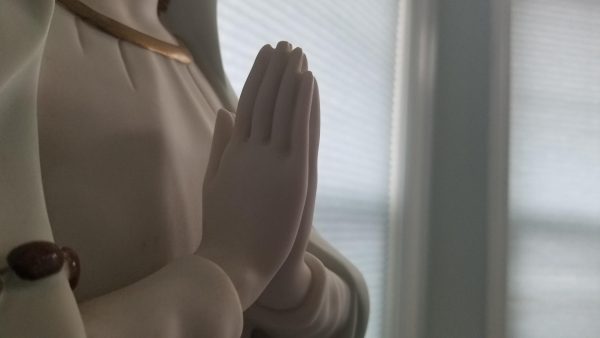When play and leisure aren’t so simplistic…
December 7, 2006
Leslie Heaphy, associate professor of history, felt the pride and gratification as she sat alongside the family members of former Negro League baseball players as their relatives were formally inducted into the National Baseball Hall of Fame.
These 17 players and a manager were the first inductees from the Negro Leagues, which existed during the early and mid 20th century. Heaphy, who has spent much of her academic career studying race and gender issues in sports history, worked on the 12-member committee that selected the inductees.
“This is an opportunity we can all learn from,” she said. “Fifty years from now we won’t have to go back and correct something after the fact like we did here.”
Heaphy has brought these issues into the classroom with a special topics history class she is teaching this semester at Stark campus that examines the effects of race and gender on sports history.
“Most history books start with the perspectives of ‘dead white men,'” she said. “Through this class, we hope to go back and fill in the details about history that have been left out of most books.”
Following these historical trends can help students understand issues facing today’s sporting culture, she said. During a class discussion, the group examined the games slave children played as well as early contributions by women to sporting culture.
From plantations to stadiums
Near a river on a plantation somewhere in the American South of the early 1800s, a group of slave children sits listening to a preacher. Only, this preacher is not an adult, but another slave child. After a rousing fury of preaching while standing in the grass, the “preacher” leads his congregation to the river where he baptizes each one of them.
Preaching became a game to slave children because they saw it around them in their everyday life. Heaphy said it’s the equivalent of children playing “school” today.
The games slave children invented came from their own creative resources and were invented purely for entertainment’s sake. Heaphy said the slaves never played games in which someone was “out.” Their games were meant to include, because they felt exclusion in so many other aspects of their lives.
Today the scene is different as fans crowd into a football stadium and watch a college athlete (perhaps no bigger than a speck on the field) attempt to kick a game-winning field goal. If he misses, the fans aren’t usually very forgiving.
Heaphy said sports have become a business where nothing less than winning the game is acceptable to most fans.
Michael Norton-Smith, junior political science major in the class, also believes this “win-it-all” mentality has had a negative effect on sports.
“Sports have lost their purity today,” he said. “It’s all about money and profit.”
This has led to confusion about the role of college athletes in society, Heaphy said.
“The big question is, are they athletes or students first,” she said. “So many of them are there on an athletic scholarship, and they are forced to choose between going to practice over going to class when there is a conflict between the two in order to keep their scholarship.”
She said so many of them want to devote time to their studies, but simply can’t because of the pressure placed on them to be the best they can be in order to win.
From the basketball court to baseball ownership
It seems so common today. A female athlete dresses in a locker room preparing for a big game. She walks onto the basketball court determined to do her best. The tension is as real for her as it is for a male in the same position.
Yet, Heaphy said young women face the challenge of serving a dual role of being female and an athlete at the same time. For this reason, girls often favor sports like volleyball, which involve less physical contact, and in turn, less “maleness.”
Girls today are more involved in sports at a younger age, but their opportunities often diminish as they grow older.
“One prime example is Little League,” she said. “Girls can play there, but they often can’t go much further. It’s like we’re opening a door for them and then closing it right away.”
It’s important to present stories about strong women in sports as role models to young girls. This way, they’ll feel more inclined to consider athletics as an acceptable path in life, Heaphy said.
One such woman was Effa Manley, an owner of a Negro League team from the 1930s who was inducted along with the Negro League players into the Hall of Fame this summer.
Heaphy researched Manley’s biography as part of her duties on the Negro League induction committee. Through her strong ownership of the team, Manley showed people that women could achieve as much as men. This is a message that young girls need to hear today, Heaphy said.
Through this class, Heaphy said she hopes students will be more aware of the effects of sports upon the entire culture.
“As a society, we don’t often take the time to question if something is wrong,” she said. “Through the discussions in this class, I hope students will take the time to think about things in our culture and ask the necessary questions to make needed changes.”
Contact features correspondent Trevor Ivan at [email protected].
























